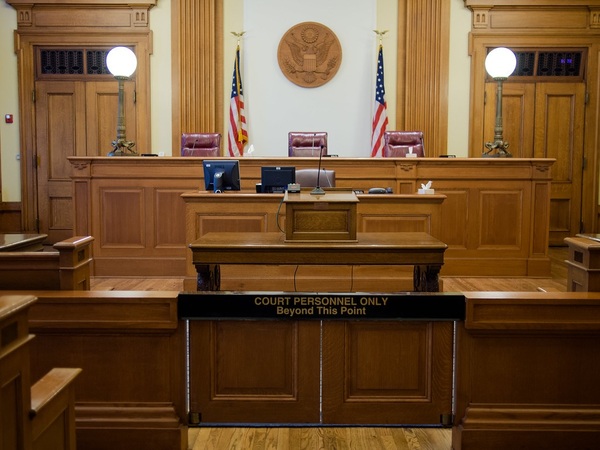
–>
September 3, 2022
A recent decision by the Supreme Court of Texas may represent a small win in a landslide of losses for innovation in the Lone Star State. But in the grand scheme, HouseCanary, Inc. v. Title Source, Inc. is a hollow victory.
‘); googletag.cmd.push(function () { googletag.display(‘div-gpt-ad-1609268089992-0’); }); }
This years-long litigation began with a contract between national real estate title company Title Source (now known as Amrock) and technology consulting firm HouseCanary. Amrock hired HouseCanary to implement and utilize its proprietary automated valuation model (AVM). Shortly after the inception of the deal, Amrock and HouseCanary each stated the other failed to deliver on its contractual requirements. Instead of accepting that the deal was over as a result of mutual deficiencies, HouseCanary decided to take Amrock to court to the tune of $740 Million — several times more than the value of the original contract.
Ultimately, an appellate court deemed that the damages and costs awarded on the basis of a breach of the Texas Uniform Trade Secrets Act (‘TUTSA’) of $740 million was inappropriate. The court found HouseCanary’s case rested on an incorrect definition of a pivotal part of that act.
What followed was a series of abysmal decisions that reveal the cracks in the TUTSA, the problems with the U.S.’s intellectual property laws, and the overall modern commercial practice of extorting as much money as possible when things don’t go as planned.
‘); googletag.cmd.push(function () { googletag.display(‘div-gpt-ad-1609270365559-0’); }); }
What should have been just damages in breach of contract was protracted over years of needless litigation. TUTSA itself enables organizations to seek judgment against those who take trade secrets through ‘improper means,’ which itself is defined as a slew of vague and hard-to-prove elements. As Jones Day points out, the implementation of TUTSA heavily expands corporations’ abilities to apply for injunctions, to sue and to claim attorney fees.
Luckily, the appellate court overturned the judgment, ruling that the trial court had incorrectly defined “improper means,” and Amrock was spared the $740 million it would have had to pay in damages. But this doesn’t solve the deeper issues. Fundamentally, the Court threw out the $740 million judgment on a technicality that the judge incorrectly clarified the definition of “improper means.” But the reality is that the improper means test itself is an extremely broad definition that opens the door for argument, and in turn, litigation.
Following this decision, HouseCanary is still incentivized to pursue more litigation. By the state Supreme Court’s own admission, HouseCanary can either restart the suit on the TUTSA claims or proceed with breach of contract. That means starting again in the trial court, incurring even more legal costs, and dragging this matter out for an indeterminate amount of time, or enforce on the $240 million in damages and costs granted by the appellate court. Either way, the damages and litigation have already far outweighed any amount that would be gained under the contract.
Texas’s approach to litigation over trade secrets and intellectual property needs to be significantly reformed. It’s clear that these corporations are not suing out of a genuine claim to damages. Just days after the original court proceedings, multiple whistleblowers proved HouseCanary’s AVM contained no proprietary intellectual property. In essence, nothing was stolen, because there was nothing to steal.
The litigation isn’t about intellectual property. It’s about smaller corporations exploiting broken laws to extort bigger companies.
 For decades now, the United States has been one of very few common law jurisdictions that allows for punitive damages in matters of civil law. This incentivizes litigation when business deals go sideways. When contracts don’t work out, why not try to make money in court? It’s a viable alternative.
For decades now, the United States has been one of very few common law jurisdictions that allows for punitive damages in matters of civil law. This incentivizes litigation when business deals go sideways. When contracts don’t work out, why not try to make money in court? It’s a viable alternative.
‘); googletag.cmd.push(function () { googletag.display(‘div-gpt-ad-1609268078422-0’); }); } if (publir_show_ads) { document.write(“
Such litigation has a significant impact on the economy. It is estimated that companies can spend up to $115 million on outside litigation, and costs have been rising 9% on average every year since 2000. Lawyers make bank off of these cases, sometimes racking up over USD$100 thousand in litigation fees.
Increased litigation is bad for business. Why make a deal with anyone when it’s more profitable to take you to court for over 100 times the amount of the original contract, and make you pay their legal costs?
And it’s easy to see just how that scenario plays out here. HouseCanary’s original contract agreement of $5 million per year pales in comparison to the $740 million damages they were initially awarded. $470.8 million of the total amount of damages awarded did not even represent actual damages, but rather punitive damages as an attempt to ‘disincentivize’ poor behavior. And to top this off, the court drama has lasted half a decade, with over a thousand pages of submissions and evidence being provided.
Keeping the culmination of everything above in mind, it’s easy to see how another claim filed for a breach of the TUTSA, with the support of the Appellate and Supreme Court of Texas, will lead to even more time litigating, and even more costs incurred and attributed to the losing party.
That’s years of litigation establishing legal precedent for allowing smaller companies to bleed their larger counterparts dry through punitive damages. The result of all this can only be that corporations will stop cooperating with one another.
If the Courts want to truly disincentivize poor behavior, then there needs to be other solutions than attributing more costs that go directly to the winning party. A monetary punishment becomes less of a punishment and more of an accounting challenge that stifles business, and forces companies to reallocate resources to survive protracted cases.
In other jurisdictions, punitive damages have been shunned by judges in common law. They are seen for what they are — an opportunity for lawyers to pursue and bleed corporations out of damages that aren’t rightfully theirs, and don’t actually serve a purpose other than to disincentive innovation and cooperation between companies.
No purported benefit of TUTSA can possibly outweigh the floodgates of litigation that it has opened. It’s time to scrap it and replace the legislation with much narrower definitions and explicitly tighter limitations on claimable damages, especially punitive damages, to disincentive companies from needless and costly litigation.
Damon Miles is a Juris Doctor Student at the University of Western Australia and a Business Law graduate from Curtin University. He currently is a paralegal in commercial litigation, and a regular Young Voices Contributor based out of Perth, Western Australia.
Image: Karen Neoh
<!– if(page_width_onload <= 479) { document.write("
“); googletag.cmd.push(function() { googletag.display(‘div-gpt-ad-1345489840937-4’); }); } –> If you experience technical problems, please write to [email protected]
FOLLOW US ON
<!–
–>
<!– _qoptions={ qacct:”p-9bKF-NgTuSFM6″ }; ![]() –> <!—-> <!– var addthis_share = { email_template: “new_template” } –>
–> <!—-> <!– var addthis_share = { email_template: “new_template” } –>







